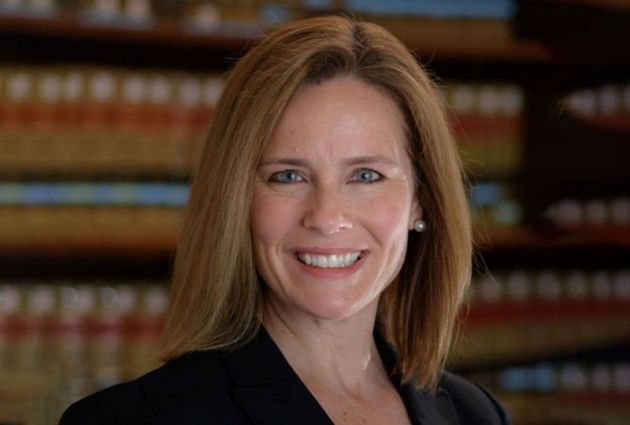US Court ruling on religious services irrelevant, says NY governor, but decision shows future inclination

When the U.S. Supreme Court barred restrictions on religious services in New York that Governor Andrew Cuomo had imposed to combat the novel coronavirus, numerous religious organizations cheered it as setting down a marker in the United States.
The vote was 5 to 4, with Chief Justice John G. Roberts Jr. and the court's three liberal members in dissent, The New York Times reported.
The ruling stirred debate on the notion of the "wall of separation" between Church and State due to often-quoted words of U.S. founding father Thomas Jefferson in a letter he once wrote to a group of Baptists on the constituion's First Amendment's opening clauses.
"Separation of Church and State" is paraphrased from Jefferson and therefore used in looking at the Establishment Clause and Free Exercise Clause of the First Amendment to the U.S Constitution, according to Wikipedia.
It reads, "Congress shall make no law respecting an establishment of religion, or prohibiting the free exercise thereof..."
The latest U.S. Supreme Court's ruling went against earlier ones concerning churches in California and Nevada.
In those cases, decided in May and July, the court allowed the states' governors to restrict attendance at religious services, The Washington Post reported.
AMY CONEY BARRET
The order was the first in which the court's newest member, Justice Amy Coney Barrett, played a decisive role.
The ruling of the court was at odds with earlier ones for California and Nevada.
In those cases, in May and July, the court allowed the states' governors to restrict attendance at religious services.
The Times pointed out the Supreme Court's membership has changed since then, with Justice Barrett succeeding Justice Ruth Bader Ginsburg, seen as a liberal judge, who died in September.
The vote in the earlier cases was also 5 to 4, but in the opposite direction, with Chief Justice Roberts joining Justice Ginsburg and the other three members of what was then the court's four-member liberal wing.
New York Governor Andrew Cuomo called that ruling in the dispute over COVID-19 restrictions, "irrelevant" and not "final" while arguing that the decision is really more of a statement on the court's new conservative bent, Christian Today reported.
"They wanted to make a statement that it's a different court. That's the statement they're making, I understand that. And that's to be expected," Cuomo said, alluding to the impact of the recent addition of Justice Barrett on the bench without calling her by name.
"We know who we appointed to the court. We know their ideology. It's irrelevant from a practical impact because the zone that they were talking about has already been moved.
"It expired last week. I think this was really just an opportunity for the court to express its philosophy and politics," he said.
Henry Olsen, a Washington Post columnist and a senior fellow at the Ethics and Public Policy Center wrote in the newspaper that the "decision rightly reversed this noxious notion."
The court held that Cuomo's regulation, which capped attendance at houses of worship in areas in the most restrictive 'red' and 'orange' regions of the state to 10 or 25 people regardless of the edifice's capacity, to be a clear constitutional violation. "
Olsen noted, "Houses of worship, however, were arbitrarily capped at minuscule numbers in both regions. The court drily noted that there was no reason the smaller number of permitted worshippers was necessary to protect public health."
He wrote, "This reversal was possible only because of Barrett. Without the late justice Ruth Bader Ginsburg, there were only three liberals to join the chief justice in support of the governor's order."
He said Barrett joined the four conservatives who had dissented in this summer's cases to form the majority in this one.
"Liberals have often marveled at how religious conservatives could so fervently back a decidedly imperfect man in President Trump. This case, in which all three of Trump's appointees formed the majority's backbone, shows why they did."
The court's order addressed two applications: one filed by the Roman Catholic Diocese of Brooklyn, the other by two synagogues, an Orthodox Jewish organization and two individuals.
The applications both said Cuomo's restrictions violated constitutional protections for the free exercise of religion, and the one from the synagogues added that the New York governor had "singled out a particular religion for blame and retribution for an uptick in a society-wide pandemic."
CATHOLICS OPPOSE CUOMO
The Catholic Diocese of Brooklyn, which covers Brooklyn and Queens, argued houses of worship were being unfairly singled out by the governor's executive order, Crux News reported.
The diocese had argued it had previously operated safely by capping attendance at 25 percent of a building's capacity and taking other measures.
"We are extremely grateful that the Supreme Court has acted so swiftly and decisively to protect one of our most fundamental constitutional rights — the free exercise of religion," said Randy Mastro, an attorney for the diocese, in a statement.
Avi Schick, an attorney for Agudath Israel of America, wrote in an email: "This is an historic victory. This landmark decision will ensure that religious practices and religious institutions will be protected from government edicts that do not treat religion with the respect demanded by the Constitution."